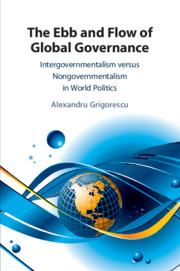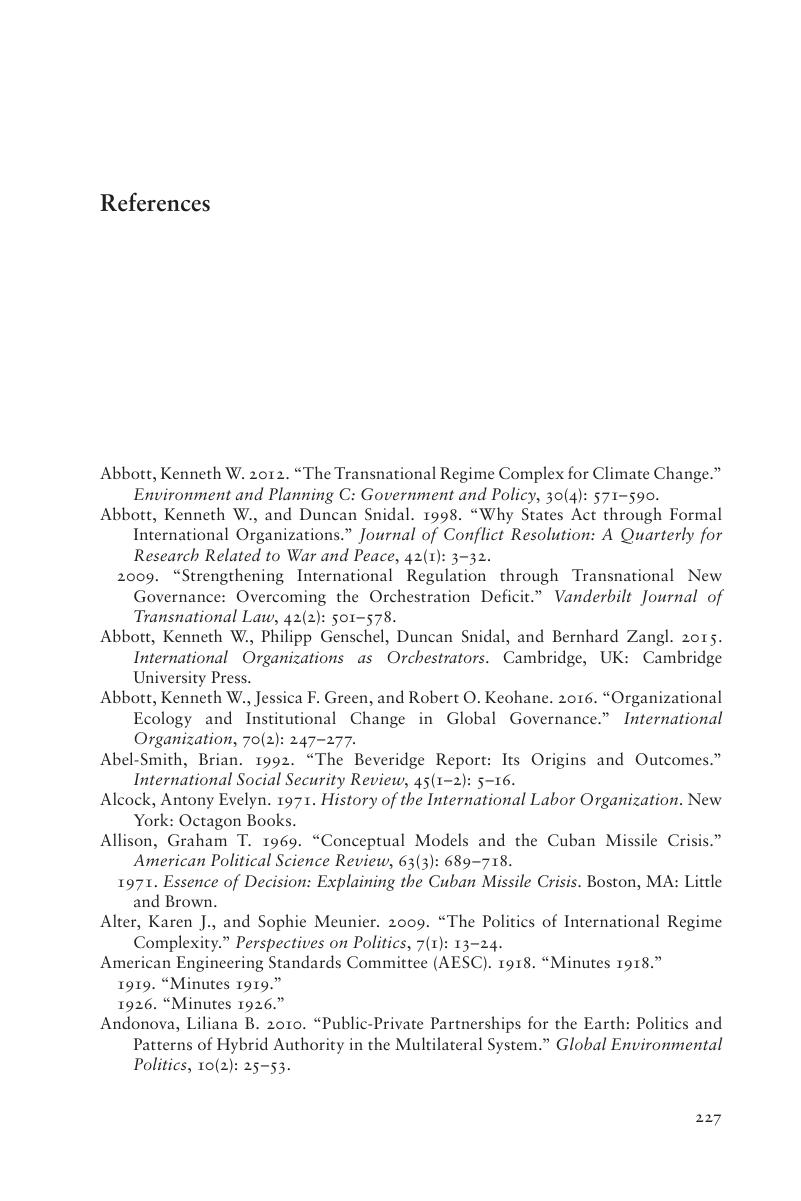 The Ebb and Flow of Global Governance
The Ebb and Flow of Global Governance Book contents
- The Ebb and Flow of Global Governance
- The Ebb and Flow of Global Governance
- Copyright page
- Contents
- Figures
- Tables
- Acknowledgments
- Acronyms
- 1 The Intergovernmental–Nongovernmental Continuum in Global Governance
- 2 Causes of Intergovernmentalism and Nongovernmentalism
- 3 Global Governance in the Health Realm
- 4 Global Governance in the Labor Realm
- 5 Global Governance in the Technical Standards Realm
- 6 Conclusions
- References
- Index
- References
References
Published online by Cambridge University Press: 17 March 2020
- The Ebb and Flow of Global Governance
- The Ebb and Flow of Global Governance
- Copyright page
- Contents
- Figures
- Tables
- Acknowledgments
- Acronyms
- 1 The Intergovernmental–Nongovernmental Continuum in Global Governance
- 2 Causes of Intergovernmentalism and Nongovernmentalism
- 3 Global Governance in the Health Realm
- 4 Global Governance in the Labor Realm
- 5 Global Governance in the Technical Standards Realm
- 6 Conclusions
- References
- Index
- References
Summary

- Type
- Chapter
- Information
- The Ebb and Flow of Global GovernanceIntergovernmentalism versus Nongovernmentalism in World Politics, pp. 227 - 250Publisher: Cambridge University PressPrint publication year: 2020


